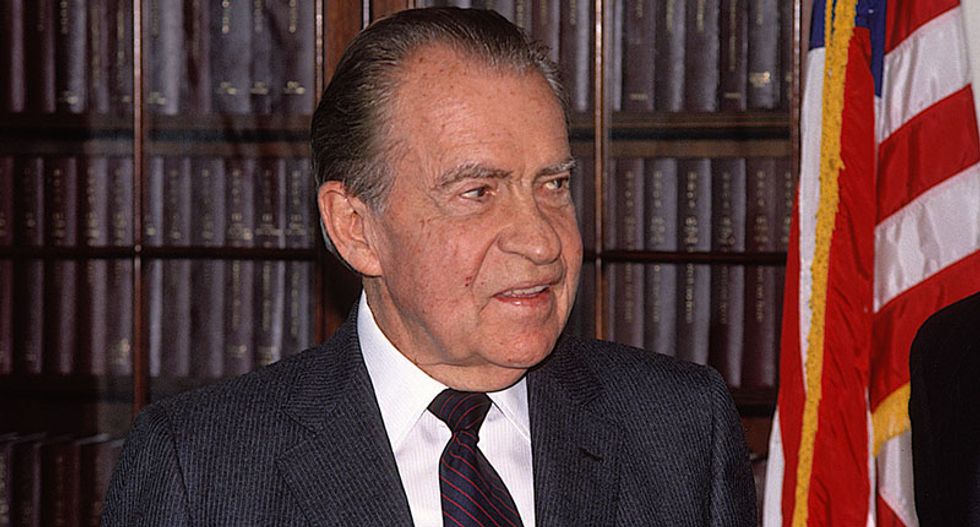Many things remain to be seen when it comes to the final report in Special Counsel Robert Mueller’s Russia investigation: when the report will be released, what information will be in the report, and whether or not the report will be made available to members of Congress. Democrats in Congress have been asserting that they will subpoena the report if Attorney General William Barr refuses to show it to them, and according to a new article by Bloomberg News reporters Erik Larson and Billy House, the 1974 case United States v. Nixon might offer some insights on how easy or difficult such a legal battle could be for Democrats.
Decided by the U.S. Supreme Court in July 1974—the month before President Richard Nixon resigned because of the Watergate scandal—United States v. Nixon was a unanimous decision, although Justice William Rehnquist recused himself from the case. With Chief Justice Warren Burger writing the opinion, the decision ordered Nixon to deliver recordings and other subpoenaed materials to a federal court.
United States v. Nixon was a landmark case that, in essence, limited a U.S. president’s ability to claim executive privilege in a criminal matter.
Larson and House interviewed former federal prosecutor Mimi Rocah (a frequent guest on MSNBC) for their article, and Rocah told them that with the Mueller report, “as in Watergate, the public interest is extremely high given that it is about the integrity of the democratic process.”
David Super, a professor at Georgetown Law in Washington, D.C., told Larson and House when he believes executive privilege for a president is at its strongest and when it is at its weakest. Executive privilege is “at its strongest,” according to Super, “when applied to information the president needs to guide his decision-making.” And executive privilege is “weakest,” Super said, “when the information is needed by Congress to perform specific, constitutionally assigned functions—and impeachment is one of those.”
Super also told the Bloomberg reporters, “A report directed to the attorney general, and one not obviously implicating any decision required of the president, would be far removed from even the less successful invocations of executive privilege in the past.”
Possibly, Larson and House note, Democrats in Congress could argue that the White House “waived its privilege” by allowing White House Counsel
Don McGahn and former White House Chief of Staff John Kelly to sit for interviews with Mueller. But David Rivkin, a former Justice Department official, told the reporters that “executive privilege “is never waived when the information is revealed to another member of the executive branch”—and that nothing is entitled to greater executive privilege than discussions between the president and his senior advisers.”


